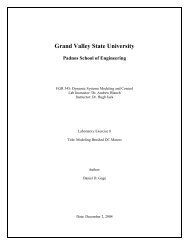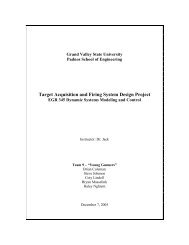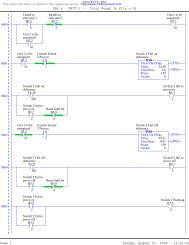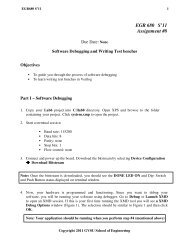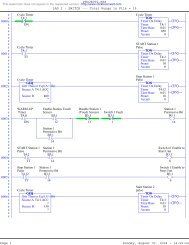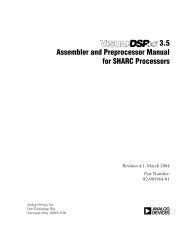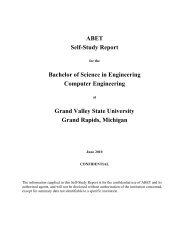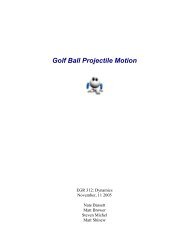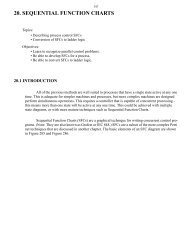Scilab Bag Of Tricks - Claymore
Scilab Bag Of Tricks - Claymore
Scilab Bag Of Tricks - Claymore
You also want an ePaper? Increase the reach of your titles
YUMPU automatically turns print PDFs into web optimized ePapers that Google loves.
target = source(index1, index2, ..., indexN)<br />
is a bit more convoluted as it has to account for the indices:<br />
Chapter 4. Unknown Spots<br />
// insertion<br />
function target = %targettype_i_sourcetype(index1, index2, ..., indexN,<br />
source, target)<br />
// extraction<br />
function [result1, result2, ..., resultM ] = %sourcetype_e(index1, index2,<br />
..., indexN, source)<br />
Warning<br />
The online-help of <strong>Scilab</strong>-2.5, help overloading, is incorrect in its explanation<br />
of the argument names to insertion-overloading. It says that target is the<br />
next-to-last, and source is the last argument. In fact the two arguments<br />
occupy exchanged positions as we have listed them.<br />
Note that for extraction the number of return values, M, is completely independent of the number of<br />
index expressions, N.<br />
Table 4-1. List of all operand type codes<br />
Variable type Code string optype Code index<br />
floating point scalar, vector, or<br />
matrix<br />
s 1 1<br />
polynomial p 1 2<br />
boolean b 1 4<br />
sparse matrix sp 5<br />
sparse boolean matrix spb 6<br />
Matlab® sparse matrix msp 7<br />
matrix of integers (8, 16, or 32bit i<br />
entries)<br />
8<br />
string c 1 10<br />
uncompiled function m 1 11<br />
compiled function mc 13<br />
function library f 14<br />
untyped list l 1 15<br />
typed list name of the tlist 1 16<br />
matrix list ml 17<br />
pointer ptr 128<br />
40



